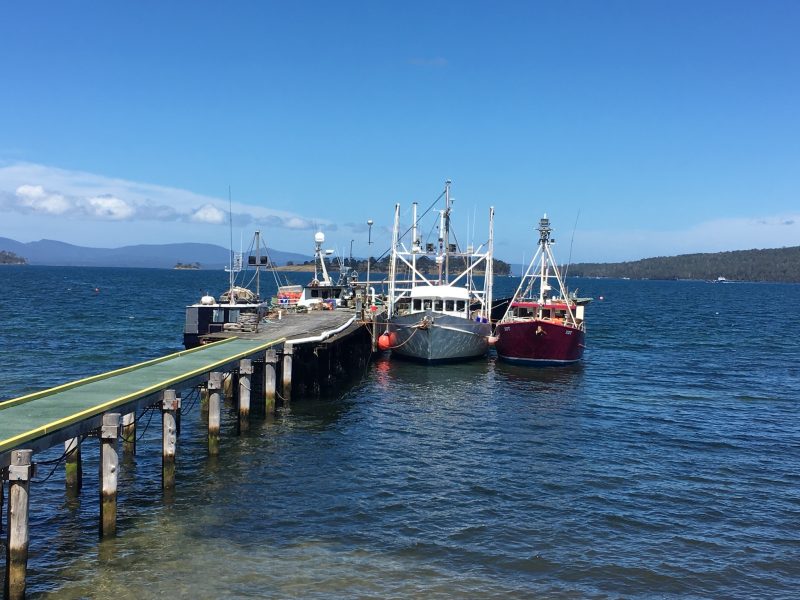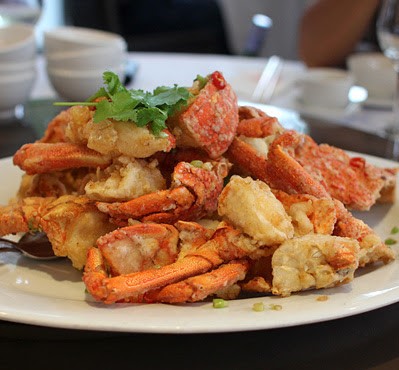‘Keeping quota in local and Australian hands’: Andrew Rado of Longreach Maris on new quota investment fund
Dr. Andrew Rado is Managing Director and Chief Investment Officer of Longreach Maris, an Australian asset manager investing in and partnering with Australia’s wild-caught seafood industry and a Tuna Australia member. We spoke with Andrew to learn about Longreach Maris’ Funds and the benefits that they aim to deliver for fishers, regional communities and the Australian public.
Can you tell us about yourself?
I grew up in regional Western Australia, so had an affinity for food, agriculture, primary production and seafood from a young age. When I finished school, I got a Bachelor of Science from the Australian National University then followed it up with a PhD on Indian Sandalwood plantations from Murdoch University and later with an MBA from the University of Western Australia. So, I’ve spent a lot of time studying, but all my studies have had a practical, applicable approach that I’ve put to good use in my career focused on investments and food production (agriculture and seafood).
What’s been a career highlight for you?
There have been many. In seafood specifically, managing the successful turnaround of the Craig Mostyn Group live lobster export business in Tasmania. It was an old business—a 60-year-old division within a 100-year-old company— of state significance to Tasmania with three export facilities located in regional communities, exporting live lobster to Hong Kong and China. The turnaround opportunity was a massive challenge as we were fixing up the business at the same time as running it. We succeeded in turning it around financially and operationally, making it one of my proudest career moments.

Lobster boats at Dover wharf in Tasmania.
Longreach Maris launched an investment fund for individual transferable quotas (ITQ) in September 2021. How did this idea originate?
Managing the turnaround of the Craig Mostyn lobster business in 2017 and 2018 really illuminated some key issues. Firstly, quota has become expensive, preventing younger fishers from buying into the industry. Secondly, there is increasing foreign ownership of quota, resulting in quota moving out of the hands of fishing families and regional communities. Thirdly, the social contract between quota holders and fishers at large is increasingly unbalanced. Tackling these challenges at a national level requires significant investment in the industry.
Until recently, there has been no institutional investment in wild-caught seafood. Australia’s large super fund industry, which manages more than $3 trillion, is seeking alternate assets because all these funds cannot continue to go into bonds and shares. That’s why Longreach Maris launched an ITQ fund—to provide a new asset class for Australian institutional investors that can deliver positive outcomes for fishers, their communities and our country as a whole.
What are the advantages of quota as an asset class?
Quota is an excellent asset class because it offers strong ecological, social and governance (ESG) attributes—a core investment principle at Longreach Maris. Australian fisheries are governed by world-class regulation, making them some of the best managed in the world and ensuring fish stocks remain healthy and sustainable.
Investing in quota supports fishing families in regional areas and provides long-term job security.
In addition, having people invested in fishing rights via super creates a stronger social contract with the people catching the fish. It’s a win-win-win situation.
What are Longreach Maris’ priorities when investing in quota?
We recognise that quota owners must sell their quota for various reasons, such as retirement, exiting, death, inheritance, divorce, debt or to just free up capital. Fishers or seafood businesses can sell quota to the Fund, instead of a competitor, which ensures the quota stays in the same fishing family or seafood business and therefore the local community. Longreach Maris is not a fishing business or a processor, it is here to make sure quota stays in or ends up in the right hands—Australian fishing families and seafood businesses.

Andrew Rado of Longreach Maris.
Our focus is on partnering with good, young fishers and we offer long-dated leases. This provides fishers with security to create long-term business plans and raise their family in regional communities. It is also helping to slow down the trend of foreign ownership of Australia’s fishing rights.
When we buy quota, our ongoing role is as an investment partner. But we don’t tell fishers how to fish or run their businesses. For most fishing businesses, quota is usually purchased via debt, so by buying and leasing back the quota, fishers can unlock more funds to invest in and grow their business.
What is the long-term vision for the ITQ fund?
Longreach Maris has some relatively small investments in high-quality fisheries, including the Eastern Tuna and Billfish Fishery (ETBF) and Southern Bluefin Tuna Fishery (SBTF). We will continue to grow that and partner with more fishers around Australia.
Since launching the fund in September 2021, we are already seeing positive impacts. For instance, Longreach Maris has helped young fishers in Tasmania and Victoria to access quota. These are individuals who could afford to buy a boat but didn’t have $5-10 million to buy their own quota.
The quota fund is supporting the next generation of fishers in regional areas, helping to build diversity of ownership, and strengthening the resilience of Australian fisheries.
What is your view on how tuna fisheries are nested in broader regional fisheries management organisations and the Australian government’s role in ensuring sustainability?
Australia’s tuna fisheries, specifically the ETBF and SBTF, are not only iconic Australian fisheries in terms of their commercial value, industry significance, regional employment, and GVP contribution to the wild-caught seafood industry, but these fisheries are leaders in fisheries management, globally. The recovery of SBTF over the last 10 years to no longer be classified as “overfished” and the long-term sustainable status and MSC accreditation of the ETBF is a testament to how well these fisheries have been managed.
A key investment criterion for Longreach Maris is to invest in ‘sustainable’ or ‘recovering’ fisheries as reported in the Australian Status of Fish Stocks Report. So, the Australian Government’s role in ensuring the sustainability of Australia’s tuna fisheries is critically important to Longreach Maris.
In my view, sustainably managed fisheries will generate significant, long term and enduring dividends through the continued access to the world’s most discernible and valuable markets—as consumers, globally, continue to demand sustainably sourced seafood.
What do you see as the key challenges and opportunities for the seafood industry in the future?
As we all know, the key challenge is the rising cost to do business, such as increasing labour, fuel, freight, and compliance costs. At the same time, we see a bright future for Australian fisheries and seafood. We have some of the best managed, sustainable fisheries in the world, and several of these, such as the ETBF, are MSC accredited.
 We are now starting to see increased demand for sustainable, MSC-accredited seafood sources, including from lucrative global markets.
We are now starting to see increased demand for sustainable, MSC-accredited seafood sources, including from lucrative global markets.
What's your favourite seafood recipe or meal?
That is a difficult one because I enjoy all Australian seafood. And I know I’ll get into trouble here, but if I was to pick a favourite, I would say salt and pepper southern rock lobster.
Thanks, Andrew.